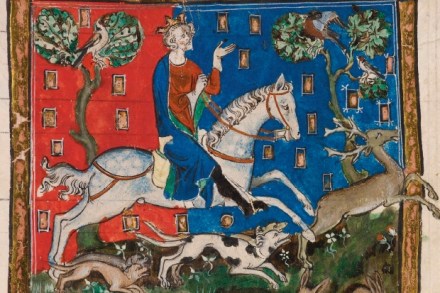All things to all men | 25 February 2016
The ocean that Christopher Oldstone-Moore has set out to chart is as broad as it is shallow: what it has meant to be bearded or shaven in the western world, from before Alexander the Great until the present day. Practicalities — shaving technology and the like — are mentioned from time to time, but only so that their importance can be minimised. His thing is the semiotics of beards. And the range of signals that a beard could send out, over so many years, is bewildering. To be clean-shaven is to be a god, a priest, Louis XIV, a French conservative of the early 19th century or a 20th-century organisation




















